OfficeSpace is a strong pick for enterprises that need deep space planning, move management, and multi-site control. That depth comes with higher costs and a per-user pricing model, which can add up fast for hybrid teams that share desks. There is no public pricing or free trial, and onboarding can take longer, so it is not ideal if you want a quick, low-risk start.
If you mainly need the everyday hybrid toolkit at a predictable cost, look at OfficeSpace alternatives. In this guide, we compare Archie, Skedda, Officely, Tactic, and YAROOMS across features, pricing, reviews, and who each one is best for, so you can see when OfficeSpace makes sense and when a leaner option is the better value.
💡 TL;DR:
The best OfficeSpace alternative depends on your needs and budget, but for most mid-size and large teams, Archie is the strongest choice. It delivers the everyday features you use most with faster setup and a lower total cost. Archie prices per resource, not per user, so you pay for the desks and rooms you actually manage. This way, costs stay predictable even when people share seats on different days.
Guide to OfficeSpace alternatives
What is OfficeSpace?
OfficeSpace is a workplace management software for companies that need tight control over their offices. Think of it as a toolkit to plan space, move teams, and run day-to-day bookings across one or many locations.
Is it worth looking for a better alternative to OfficeSpace, then? Let’s take a closer look.
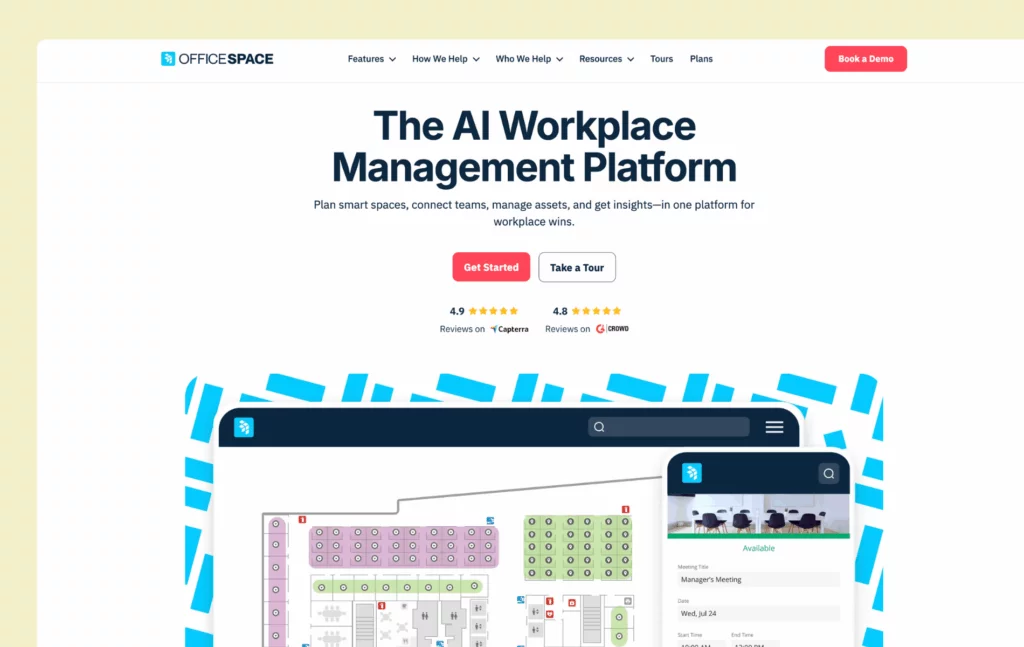
Key features of OfficeSpace Software
- Space planning and moves: Model “what-if” scenarios, use block-and-stack to plan floors, and coordinate relocations with clear tasks and updates.
- Interactive floor plans: See a live office map to view seating, find people, and check which desks or rooms are open.
- Desk and meeting room booking: Reserve desks and rooms from web or mobile with live availability, capacity, and equipment filters.
- Touchless check-in and auto-release: Check in with mobile or badge; no-shows are released automatically so others can use the space.
- Wayfinding and neighborhoods: Search for coworkers or rooms and set up team zones for activity-based work.
- Facility requests: Submit maintenance or service tickets and track progress.
- Visitor management: Greetly kiosks or QR check-in, NDAs and signatures, badges, and instant host notifications.
- Basic asset and resource tracking: Keep tabs on shared equipment and office gear.
- Workplace analytics: Dashboards and reports show how desks, rooms, and spaces are used so you can optimize layouts.
- Integrations: Works with Outlook and Google calendars, Slack and Teams, single sign-on and directory sync, HR systems, access control, badges, sensors, and APIs.
OfficeSpace Software pricing
OfficeSpace uses quote-based pricing. Each pricing plan has a base platform fee that covers a set number of “synced employees,” and costs rise as you add more users. There is no public price list or free trial, so you will need a demo to get a custom quote:
- Lite: This is the starter package for teams beginning with workplace management. It includes core Space Management tools and Desk Booking, plus basic reports, the mobile app, an AI assistant, and 24/7 support. Choose Lite if you want to get people booking desks and viewing layouts without advanced planning or visitor workflows yet.
- Essentials: Adds the features most growing organizations ask for. You get Advanced Space Management, Move Management to coordinate relocations, full Room Booking, Facility Requests for maintenance and services, and Visitor Management for front-desk check-ins and compliance. It also unlocks 30+ advanced reports and multi-lingual support. This tier fits mid-sized companies that need day-to-day bookings, moves, and stronger reporting in one place.
- Pro: Built for larger, multi-site portfolios that want live utilization and deeper connectivity. It includes Portfolio Management, Workplace Intelligence, and real-time utilization via badge, Wi-Fi, and IoT connectors. You also get advanced integrations, advanced webhooks, enhanced employee presence indicators, and workplace announcements. Pick Pro if you need richer data pipelines, automation, and programmatic control across many locations.
Although pricing plans are not listed publicly, product research and estimates suggest that plans start around $60 per user annually, plus setup fees. Still, your final price will depend on your size, modules, and integrations. OfficeSpace prepares quotes based on each company’s needs, so contacting the sales team for a custom quote is best.
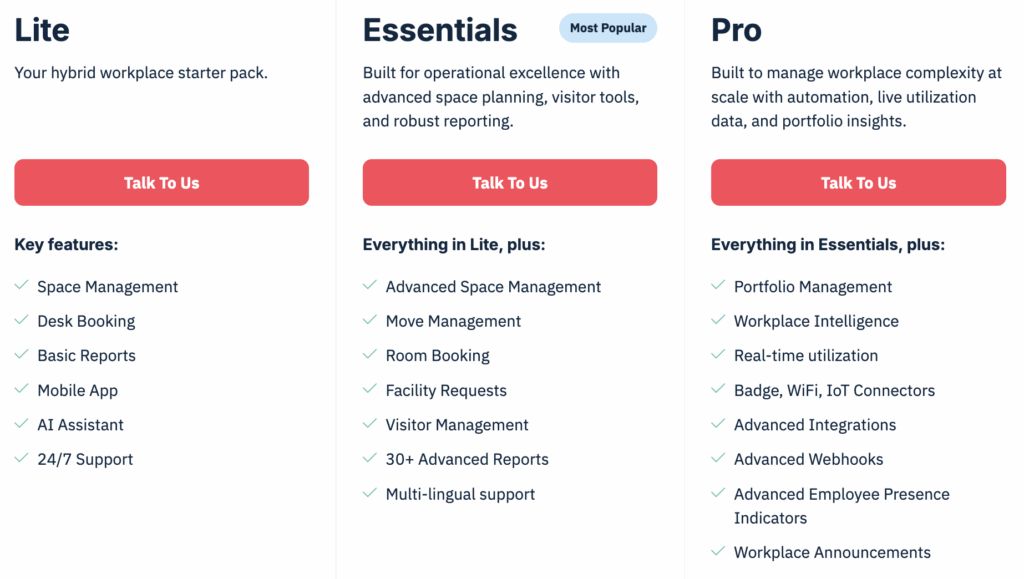
OfficeSpace Software reviews
OfficeSpace receives highly positive feedback across major review platforms. It consistently earns an average rating of 4.7–4.8 out of 5 stars, showing that users are very satisfied with the software.
What users appreciate the most
🟢 Comprehensive feature set: Companies switching from spreadsheets or simpler tools love how OfficeSpace centralizes everything in one platform — desk bookings, moves, maintenance requests, and visitor management.
🟢 Rapid feature development: The company releases new features every two weeks and claims to deliver over 90% of its roadmap annually. This commitment to continuous improvement keeps the platform evolving, though some users note the platform can be buggy.
🟢 Excellent customer support: OfficeSpace’s support team is frequently described as superb and highly responsive. Many customers mention that the company listens to feedback and even adds new features based on user suggestions.
🟢 Strong integrations. Calendars, SSO/directories, HRIS, badges, Wi-Fi, and sensors help keep data accurate and workflows smooth.

Common complaints
🔴 Interface complexity: Multiple reviewers describe the OfficeSpace platform as ‘complicated’ and feeling heavy. While the company has built its reputation on clean design, some users say that “the interface can be a little awkward,” it “could be more attractive”, and “UI and seat selection on mobile Android version is a bit clunky and heavy on performance.”
🔴 Pricing & setup costs: Several customers noted that OfficeSpace is on the pricier side and that its pricing model isn’t very transparent. There’s no free trial available, which made some hesitant to commit upfront. A few enterprise users mentioned that setting up the system for a large company (with multiple locations and thousands of employees) takes time, especially for integrations and training.
🔴 A few usability issues: A few users mentioned that adjusting a floor plan layout after an office move can be time-consuming if desks and assignments need realigning. Some users also report that the platform can be slow, potentially a consequence of its extensive feature set. That said, given the generally high ease-of-use scores, these seem to be small quibbles rather than major problems.

Why look for an OfficeSpace alternative
OfficeSpace packs strong features like move management, desk and room booking, and advanced workplace analytics. The catch is price:
- Per-user pricing model: OfficeSpace is priced per user and does not publish prices. For hybrid offices where people share desks, per-user licensing can get expensive fast, and you may also see setup or per-floor-plan fees. If you prefer predictable costs, tools like Archie price per resource so you pay for the desks and rooms you actually manage.
- Time to value: Buying usually starts with a demo and a custom quote. There is no free trial, and onboarding can take weeks. That is fine for enterprises with formal rollouts, but it is slower if you want a quick start.
- Complexity vs. your needs: OfficeSpace shines at enterprise planning such as block-and-stack, scenario modeling, and move management. If your day-to-day is mostly desk and room booking, “who’s in,” visitor check-ins, and basic analytics, the full suite can feel like more than you need.
That said, large, multi-site organizations that run frequent moves, rely on badge or sensor data, and need advanced space planning often get strong value from OfficeSpace’s depth and enterprise support. But, for companies with large teams or on-and-off office attendance, the total can climb quickly.
If you’re looking for a better-priced hybrid office platform with comparable features, here are some of the best OfficeSpace alternatives.
Top 5 OfficeSpace alternatives
- Archie: Best OfficeSpace alternative for mid-sized, large, and growing hybrid workplaces.
- Skedda: OfficeSpace alternative for custom booking workflows.
- Officely: OfficeSpace alternative that works within Slack or Microsoft Teams.
- Tactic: OfficeSpace alternative for organizing hybrid team schedules.
- YAROOMS: OfficeSpace alternative for AI-assisted scheduling
#1 OfficeSpace alternative: Archie
Archie is the best OfficeSpace alternative for booking desks, reserving meeting rooms, and managing visitors. Unlike platforms that charge per user, Archie’s pricing is based on resources (like desks or rooms), which makes it a cost-effective choice for hybrid work models with flexible office attendance.
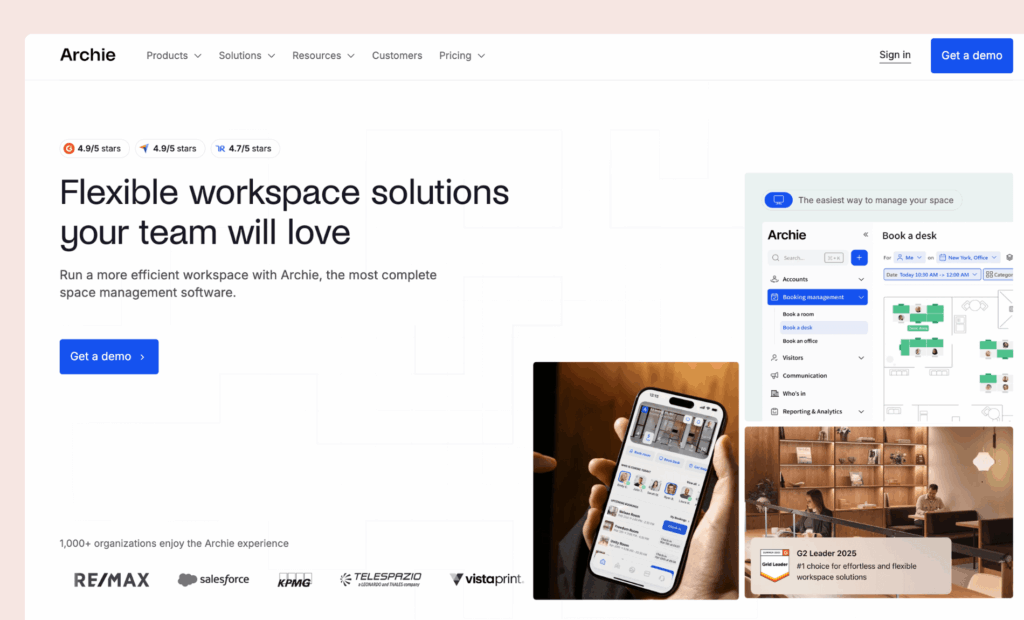
🔑 Key features
- Desk & meeting room booking: Reserve desks, book meeting rooms, and set up recurring reservations. You can also assign permanent desks to employees who need a dedicated workspace.
- Interactive floor plans: View a real-time office map and select your preferred desk or room with a few clicks.
- Employee lookup: Find coworkers easily by checking their seating location or seeing if they’re in the office that day.
- Neighborhood zoning: Organize workspaces into team zones to encourage collaboration while keeping the office layout flexible.
- Visitor management system: Streamline guest check-ins with QR codes, maintain visitor logs, and improve office security.
- Integrations: Archie integrates with Microsoft 365, Slack, and Google Workspace, among other popular office tools, to make it easy for your team to book workspaces.
- Mobile access: Book and manage reservations on the go with Archie’s free mobile app. You can also opt for custom branding for an extra fee.
- Workspace analytics: Get detailed reports on desk & meeting room occupancy, office attendance, and foot traffic to optimize how your space is used.
🔎 Pros & cons
🟢 User-friendly: Simple interface and great customer support make it easy for teams to start using.
🟢 Reasonable pricing: Resource-based pricing helps keep costs lower, especially for companies with growing teams.
🔴 Best for mid-sized and larger teams: The resource minimum is ideal for small workplaces.
💳 Pricing
From $2.8 per desk and $8 per room (minimum $159/month). Visitor management is an add-on module priced separately. Not sure if it’s right for you? A free trial is available to test the platform before committing.
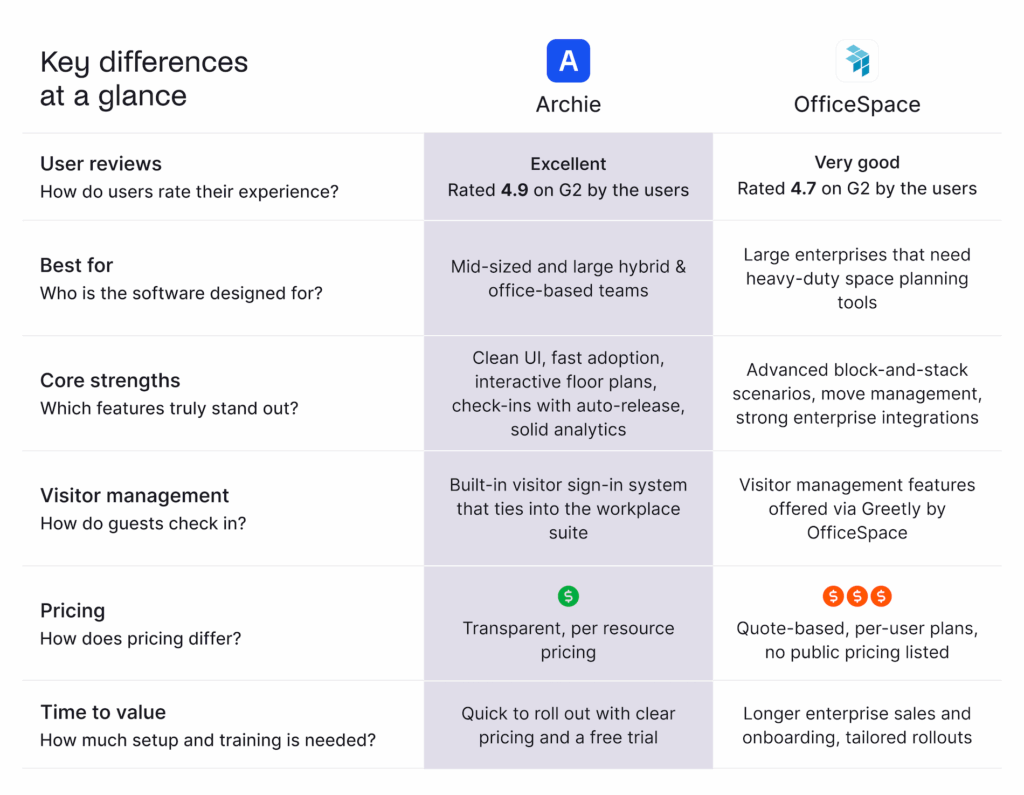
#2 OfficeSpace alternative: Skedda
Skedda is an easy-to-use OfficeSpace competitor designed for hybrid offices, coworking spaces, and event venues. It helps you manage desks and meeting rooms with interactive maps, flexible booking rules, and real-time availability, making it easier to maximize office space.
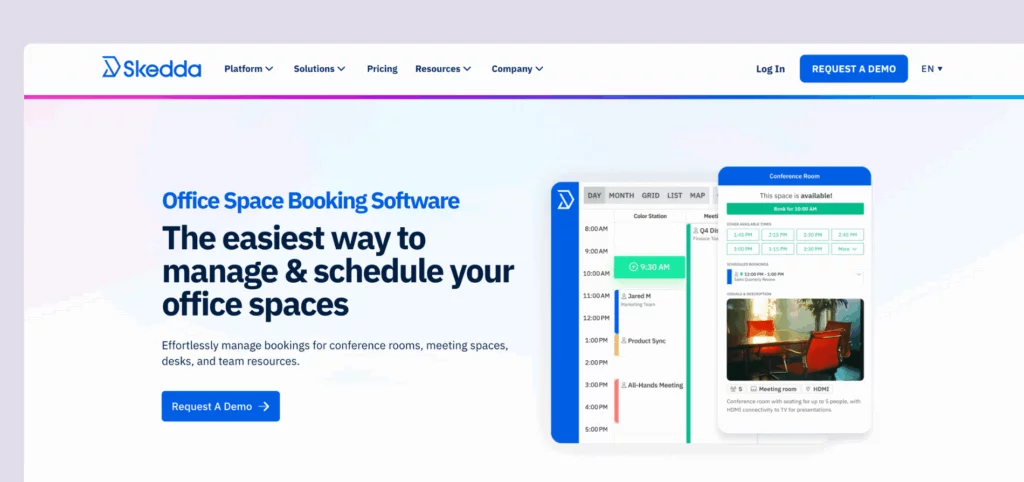
🔑 Key features
- Desk & room booking: Quickly reserve workspaces using a drag-and-drop interface with real-time availability.
- Interactive floor plans: Customizable office maps let employees choose their preferred desk or room with ease.
- Custom booking rules: Set time limits, cancellation policies, and user permissions to manage space efficiently.
- Neighborhood zones: Group desks into team areas to encourage collaboration while maintaining workspace flexibility.
- Seamless integrations: Skedda connects with Slack, Google Workspace, and door access systems to streamline workplace operations.
🔎 Pros & cons
🟢 User-friendly: The simple, intuitive design allows employees to start using it right away with little to no training.
🟢 Highly customizable: Flexible booking rules and settings help tailor the platform to suit different office needs.
🔴 As you expand, the bill can grow quickly: Space-based limits mean upgrades happen earlier than planned, which often makes users look at Skedda alternatives.
💳 Pricing
Skedda’s pricing starts at $99 per month for up to 15 spaces, with higher-tier plans available for larger offices. The visitor management module is available as an add-on for $99 per month. If you’d like to test it out first, a free trial is available.
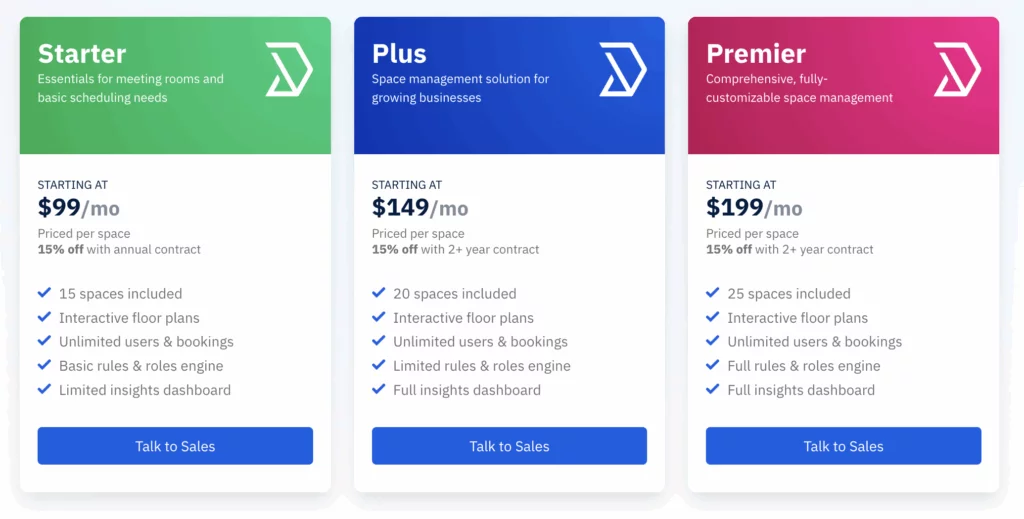
#3 OfficeSpace alternative: Officely
Officely is an OfficeSpace alternative that works directly within Slack and Microsoft Teams. It allows your employees to reserve desks, meeting rooms, and office resources without leaving their workspace apps. Designed for hybrid teams, Officely makes it simple to plan office visits and coordinate schedules without switching between multiple tools.
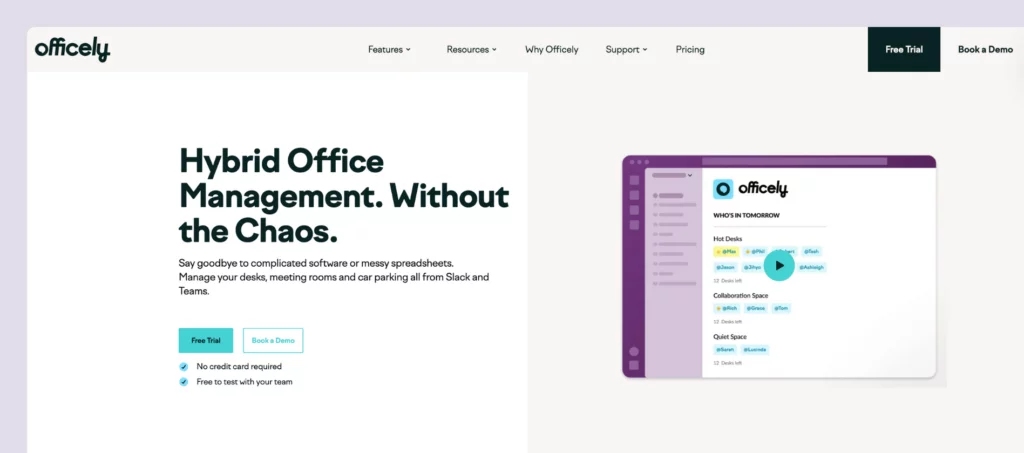
🔑 Key features
- Slack-integrated booking: Reserve desks and meeting rooms directly in Slack, making scheduling fast and effortless.
- Resource management: Book desks, parking spaces, bike racks, and even pet-friendly areas with ease.
- Office visibility: See who’s coming into the office to help teams plan their in-office days and collaborate more effectively.
- Event planning: Officely simplifies organizing team lunches, office gatherings, and events to encourage engagement.
- Space usage insights: Track attendance and workspace usage with helpful insights to improve office layouts and resource management.
🔎 Pros & cons
🟢 Seamless Slack & Teams integration: Employees can book spaces directly within their chat apps, saving time.
🟢 Simple & intuitive: The easy-to-use interface makes office reservations quick and straightforward.
🔴 Slack dependence: Some features, like room booking, only work in Slack, which may be a limitation for companies using other platforms.
💳 Pricing
Officely’s pricing starts at $2.50 per user per month for desk booking on annual plans, plus $12 per meeting space per month, also billed annually. It’s free for smaller teams with up to 5 users.
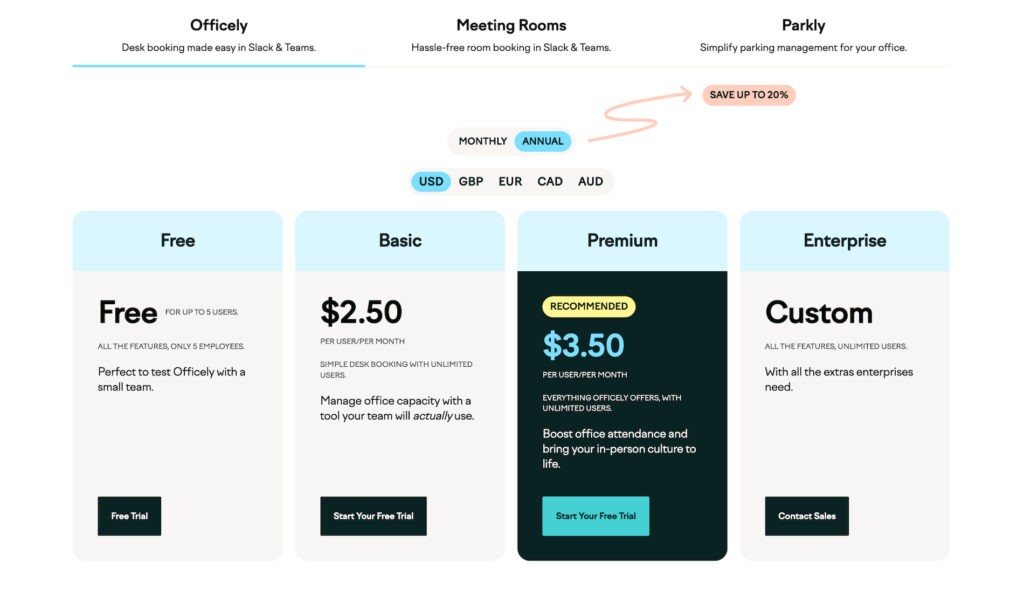
#4 OfficeSpace alternative: Tactic
Tactic is an OfficeSpace alternative that makes it easy for hybrid teams to reserve desks and meeting rooms, whether they’re in the office or working remotely. It seamlessly integrates with Slack and Microsoft Teams, among other popular workplace tools.
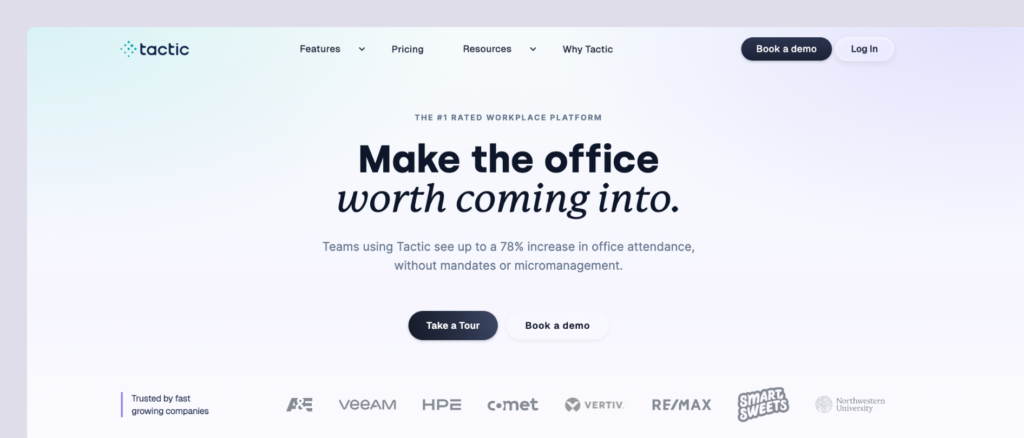
🔑 Key features
- Meeting room reservations: Quickly book meeting spaces and avoid scheduling conflicts.
- Desk booking: Employees can reserve desks easily, which makes it ideal for hot desking and office hoteling setups.
- Workspace zones: Organize workspaces by floors or departments so teams can sit together in dedicated areas.
- Seating assignments: Assign desks on a temporary or permanent basis to accommodate different employee needs.
- Future booking limits: Control how far in advance employees can reserve desks.
🔎 Pros & cons
🟢 Easy to use: A simple and intuitive interface makes booking spaces quick and workspace tracking effortless for managers.
🟢 Highly flexible: Customizable rules and automated desk assignments make it easy to adapt to any workplace setup.
🔴 Minor technical issues: Some users mention small technical hiccups, like occasional login issues when setting up SSO for the first time.
💳 Pricing
Tactic charges per workspace and offers three tiers. Core is $3/workspace and focuses on desk and room booking with calendar sync, check-ins, and reporting. Pro is $4/workspace and adds visitor management, workplace requests, SSO/directory sync, Tessa AI, and advanced booking controls. Enterprise is quote-based, with custom integrations, stronger security, and a more hands-on rollout.
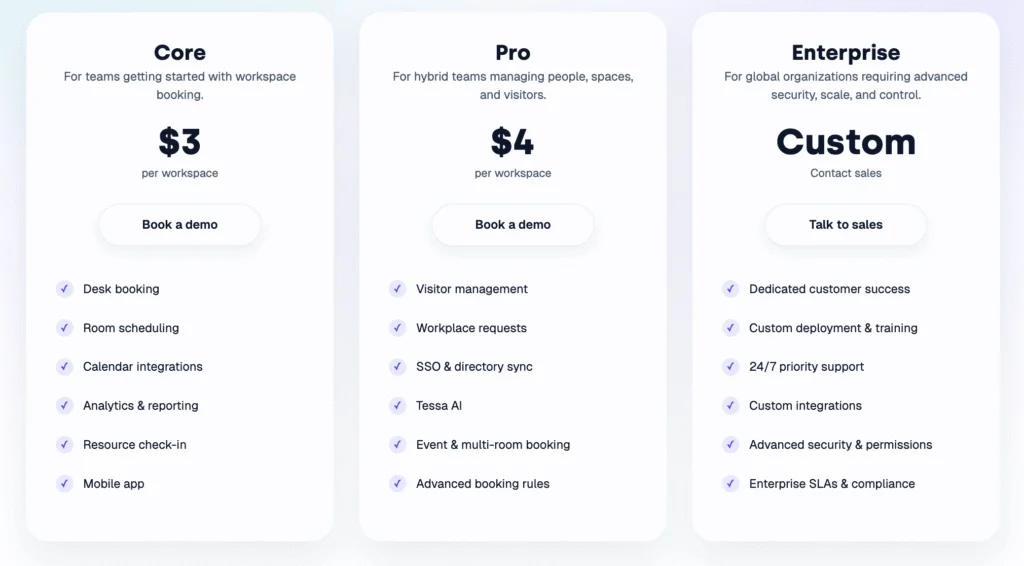
#5 OfficeSpace alternative: YAROOMS
YAROOMS is an OfficeSpace competitor that helps you book meeting rooms, manage desks, and track space usage with ease. Designed for hybrid and flexible workplaces, YAROOMS ensures teams can stay organized and make the most of their office spaces.
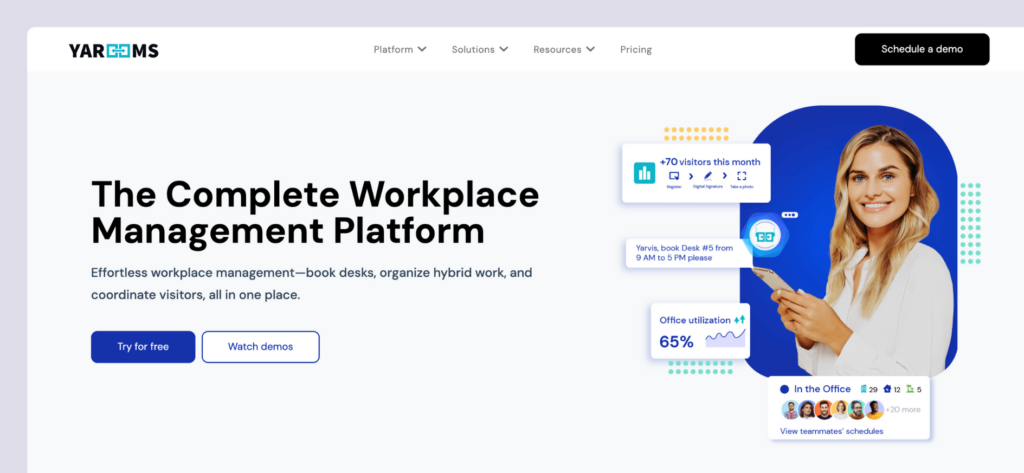
🔑 Key features
- Room and desk booking: Employees can quickly reserve meeting rooms, check availability, and set up recurring bookings.
- Customizable settings: Admins can adjust booking rules, room types, and resource availability to match company hybrid work policies.
- Seamless integrations: YAROOMS works with Google Calendar and Microsoft Outlook to prevent double bookings and simplify scheduling.
- AI Workplace Assistant: Available on Microsoft Teams and Slack, this smart assistant can schedule reservations, set recurring bookings, find rooms with specific amenities, and even locate colleagues in the office.
- Office utilization reports: YAROOMS provides analytics on space usage, no-show rates, and popular booking times.
🔎 Pros & cons
🟢 User-friendly interface: Many users say the interface feels simple and intuitive, even for people who don’t usually work with booking tools.
🟢 Responsive support: Users often highlight quick and helpful onboarding, setup guidance, and troubleshooting from the support team.
🔴 Mixed mobile experience: Some users feel the mobile app isn’t as smooth or fully featured as the desktop version, especially when it comes to floor maps and navigation.
💳 Pricing
YAROOMS offers three pricing plans based on the number of users and office locations. The Starter plan includes desk and room booking features and starts at $99/month for 10 users or $199/month for 20 users. Visitor management software is available as an add-on for $99/location per month.
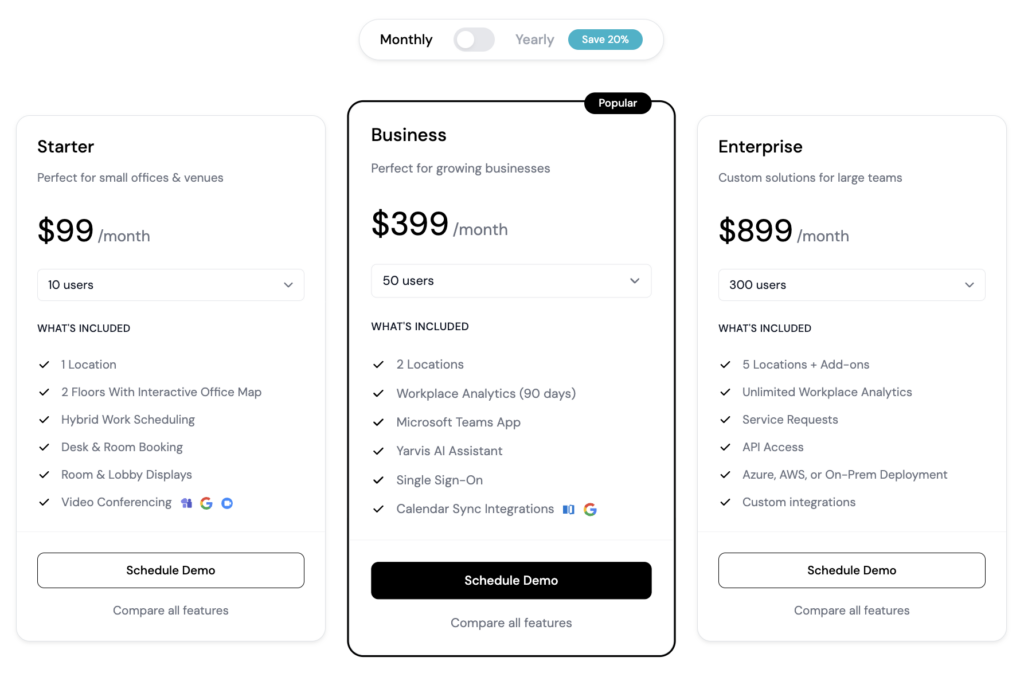
What’s the best OfficeSpace alternative?
If you want the same everyday outcomes as OfficeSpace without the per-user price creep, Archie is the safest bet. Archie charges per resource, so you pay for the desks and rooms you actually manage. That keeps costs predictable for hybrid teams where people share seats on different days.
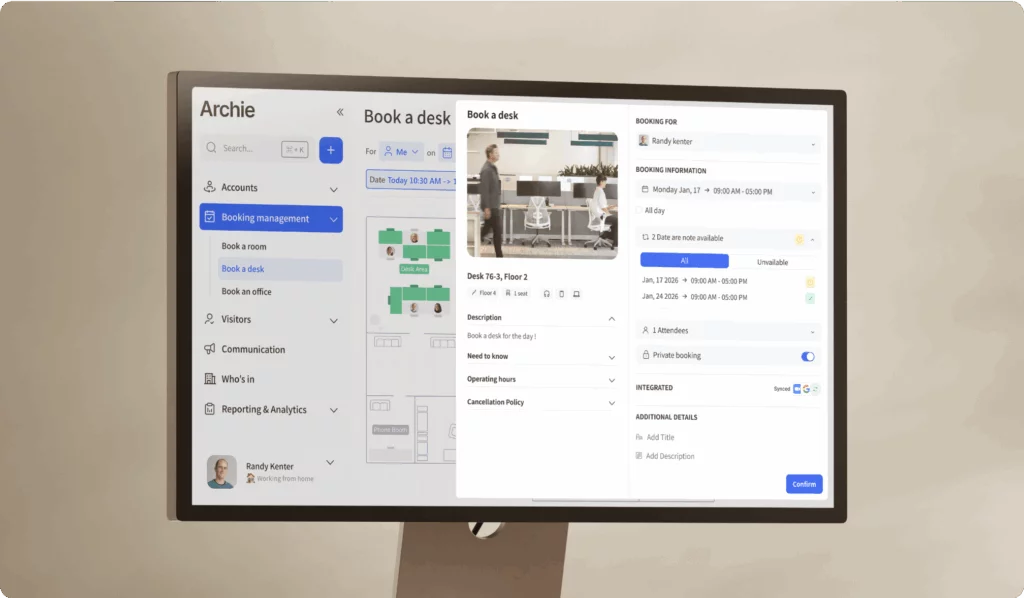
With Archie, you get the complete hybrid office toolkit in one intuitive app: interactive floor plans, desk and meeting room booking, “who’s in” views, check-ins with auto-release, booking rules, approvals, and room displays. Employees can book from web or mobile, and from Google Calendar or Outlook, which helps adoption from day one.
Visitor management software is offered as a tightly integrated module. Guests can check in on a kiosk or via QR, hosts get instant notifications, you can capture NDAs and print badges, log deliveries, and keep a live “who’s on site” list for safety. If you want to keep pricing modular, visitor management can be added as an optional add-on.
Archie also plugs into the stack you already use. It connects with Google and Outlook calendars for booking, Slack and Teams for notifications, and supports single sign-on and directory sync for easy admin. The hybrid office solution page highlights Archie’s recent G2 recognition and shows how the workflows fit together across locations.
If you truly need heavyweight planning like block-and-stack, scenario modeling, large-scale move management, and portfolio-level governance, OfficeSpace’s enterprise tiers are purpose-built for that world. If your goal is reliable hybrid operations at a fair, predictable price, Archie is usually the smarter choice.
When you’re ready to switch to a new platform, it doesn’t have to be complicated. Let our team take care of the entire software migration process for you.
Sources
- Review sites (G2, Capterra)
- Archie’s product research
- Competitor website analysis

Berenika Teter
Archie's Content Manager, fueled by filter coffee and a love for remote work. When she’s not writing about coworking spaces and hybrid workplaces, you can probably find her exploring one.
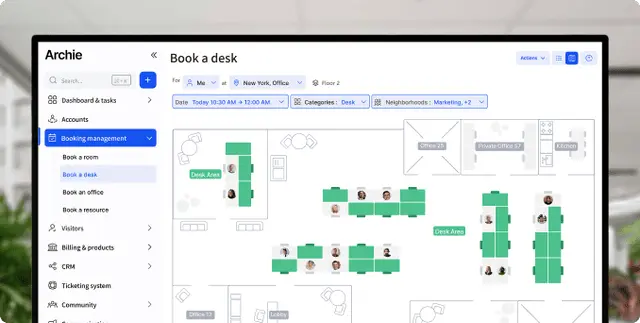
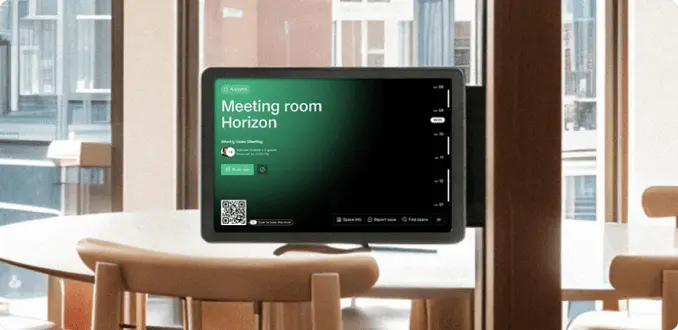

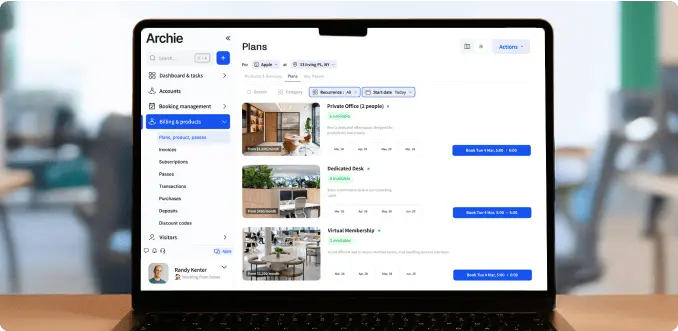
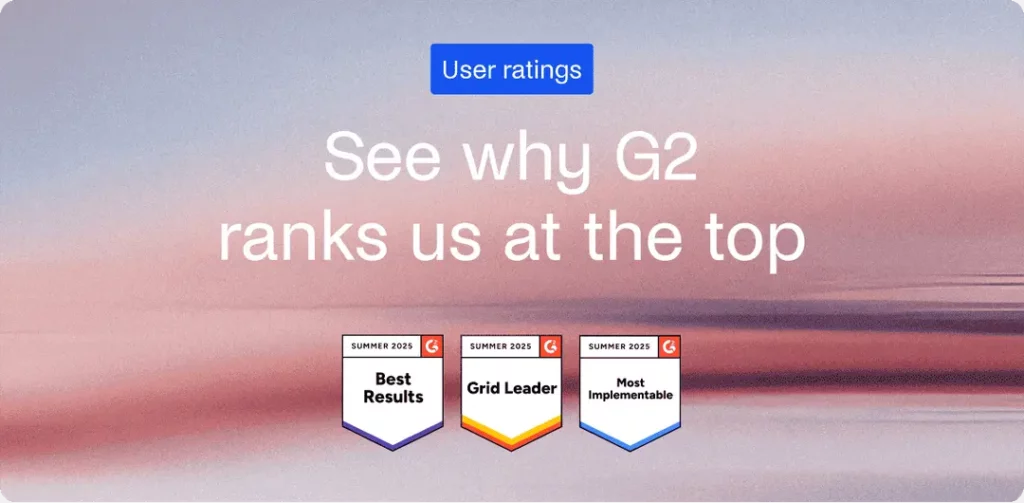
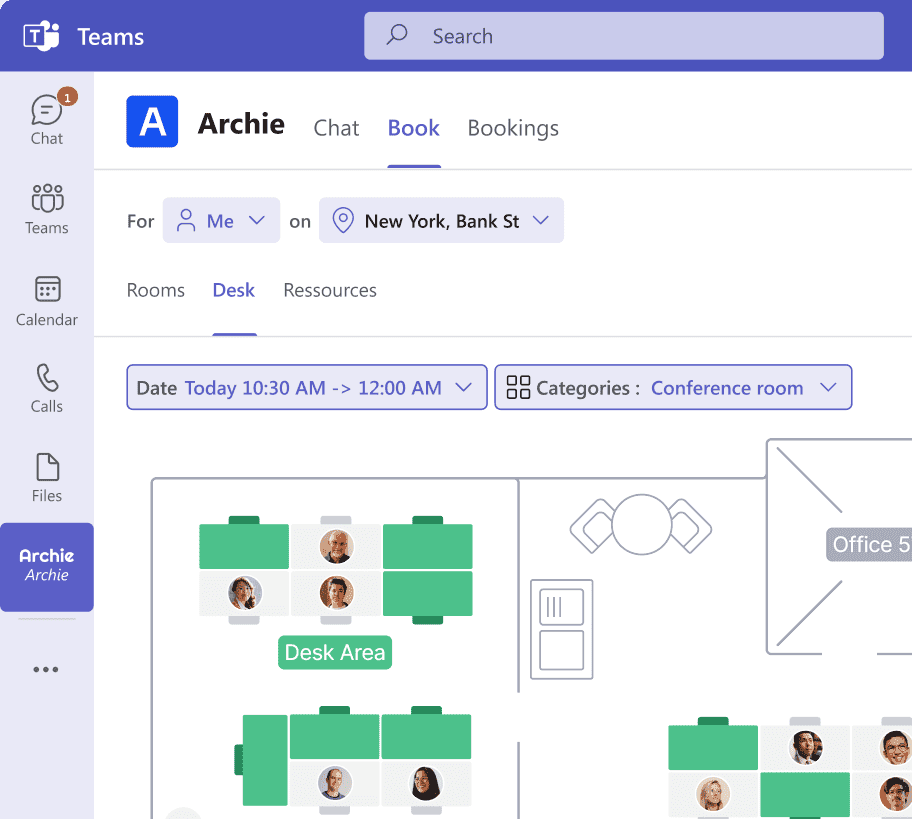
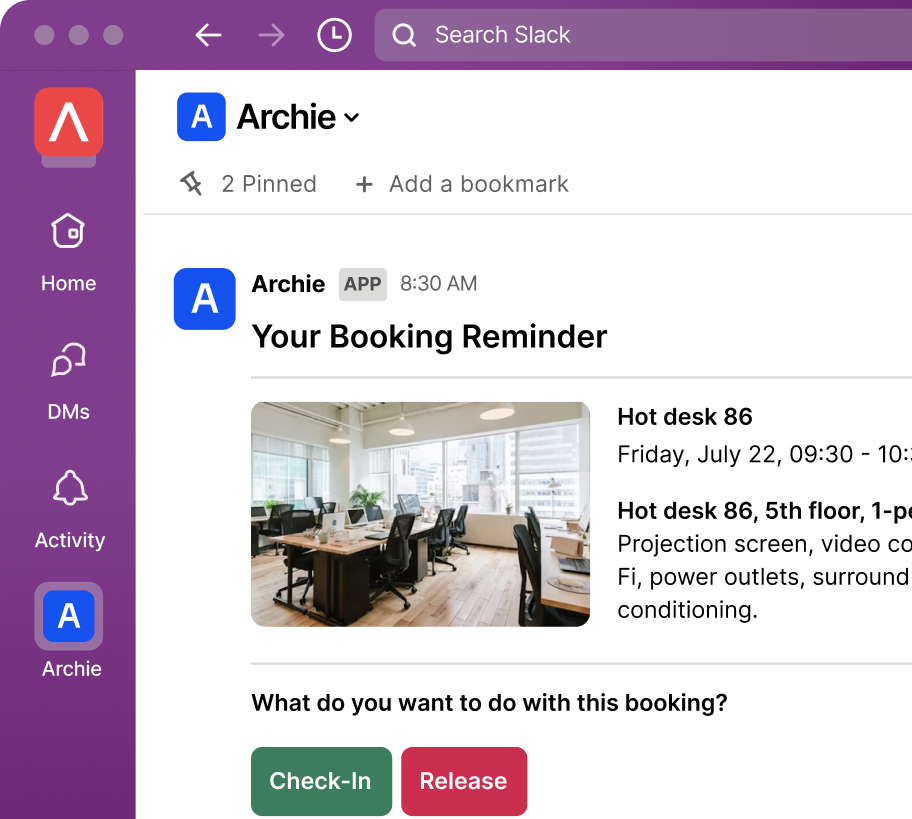
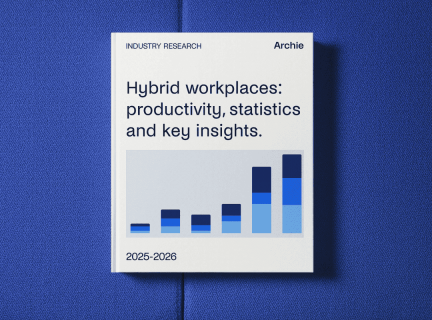

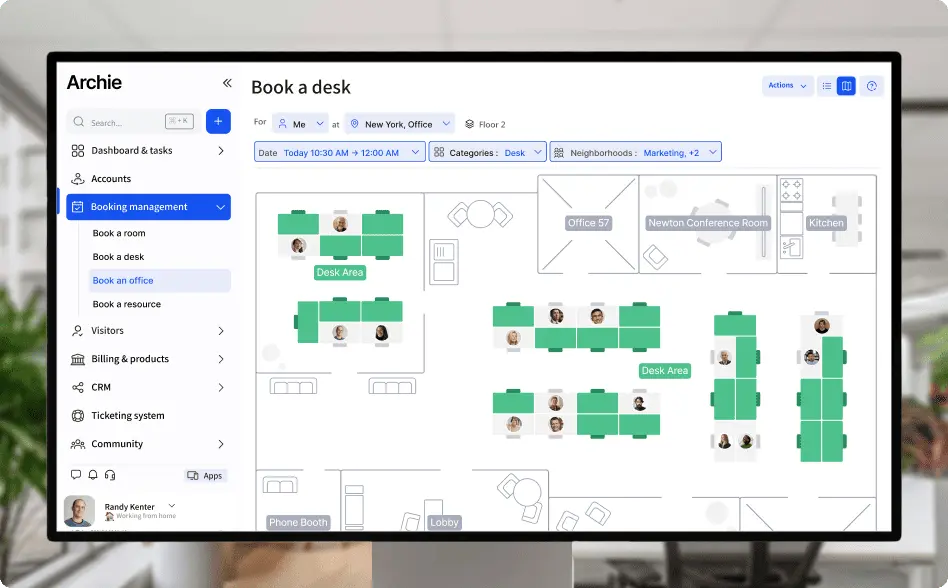
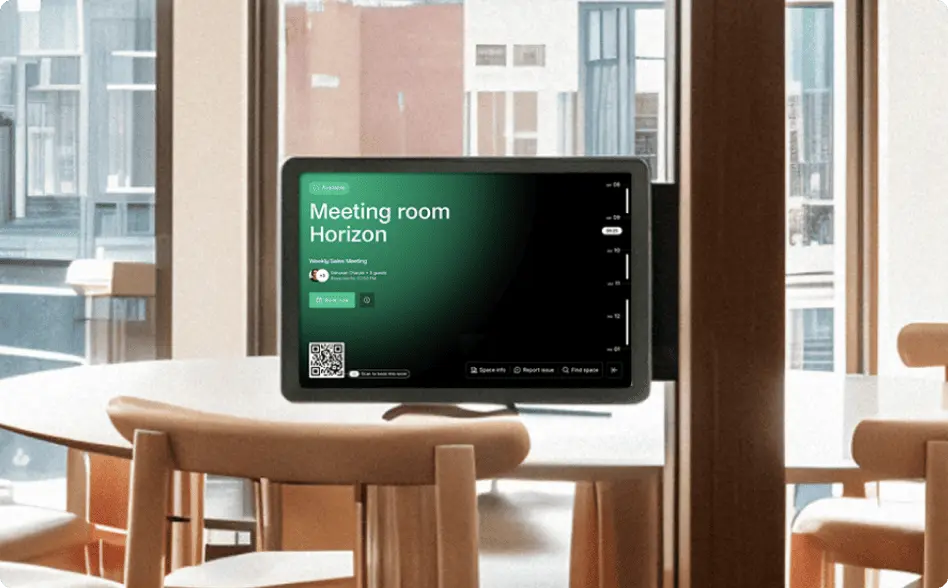

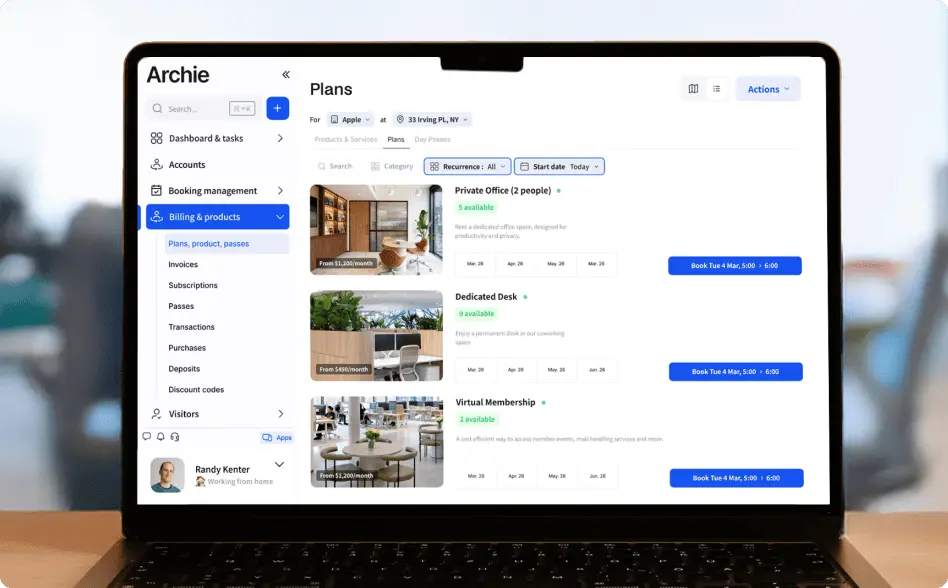





![Envoy Software Review: Features, Pricing, Pros & Cons [2026] Office space full of desks.](https://archieapp.co/blog/wp-content/uploads/2025/10/Envoy-software-overview-cover-image-400x400.jpg)
![SwipedOn vs Envoy: Visitor Management Comparison [2026] Modern office lobby with curved seating, soft lighting, and a clean, open layout.](https://archieapp.co/blog/wp-content/uploads/2026/02/SwipedOn-vs-Envoy-cover-image-400x400.jpg)
